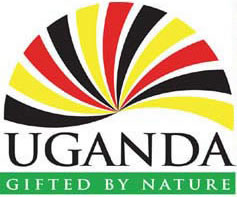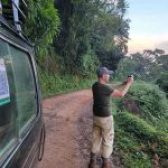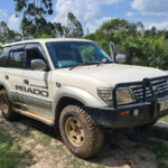Planning to travel to Uganda? At the Gifted By Nature, we bring to you the most important travel tips and advice to help you get started with planning a safari in Uganda.
Traveling in Uganda can be amazing if you are in the know of the essential information and guidelines to help you get around with ease. To visit your own country is to discover ancient cultures, beautiful landscapes, some of the world’s best tropical rain forests, growing African cities and friendly people. It’s something everyone should do.
Quick Travel Tips
Dos and Don’ts:
Uganda is rightly called the Pearl of Africa, the people are friendly and most parts of the country are trouble free and can be visited without problems. However, although Uganda claims the lowest crime rate in East Africa, there is sometimes the exception. A few simple precautions will help you ensure that your visit is trouble free. For your own peace of mind it is advisable that you follow the following simple guidelines.
* Do not carry large amounts of cash with you or leave it in your hotel room.
* Do not leave your valuables or any luggage exposed in the back of your car or on the roof.
* Camp only on approved sites and never in secluded areas.
* Watch your handbag when shopping or in crowded streets, restaurants or pubs.
* Park in controlled parking areas and always lock your car.
* When visiting tourist sites do not wander off the trail or the environs of the site unless you are sure you know where you are going.
Communication
Not unlike other developing countries, telecommunication is still a developing sector in Uganda but tourists normally do not face too many communication problems. Over 70% of the country is covered by mobile phone networks although the mountainous regions do present a few problems. You can buy SIM cards anywhere in the country and even get yourself a starter pack after entering the country. International calls can be made from all the large cities and phone booths can be easily spotted in the towns and cities.
Internet communication is not all pervasive and the rural areas seldom offer any Internet facilities. If staying connected over the Internet is essential for you, make sure that your hotel is sufficiently equipped. Jinja and Kampala have a number of Internet cafés. Almost all towns with a population of over 20,000 have Internet cafés operating off mobile phones or VSATS. Tourists who are used to high speed Internet connections are likely to find the speeds here frustratingly slow.
Currency/Money
The Ugandan shilling (code: UGX or UgSh) is the national currency of Uganda. Shilling notes are available in denominations of 1000, 5000, 10000, 20000 and 50000, while coins are available in denominations of 10, 20, 50, 100 and 200. The 10-shilling coin is however no longer in use.
Foreign currencies that are generally accepted are the Euro (EUR), the British pound (GBP) or US dollars (USD) that have been issued after 2000. Old USD may be refused even at banks while new notes can be used directly at reasonable exchange rates, although you will be given only shillings in change. It is wiser however to exchange USD for shillings in advance. Under current exchange rates, it is over 2000 shillings to the USD and over 3200 shillings to the GBP. Traveller’s cheques are not easy to cash and notes can be exchanged for UGX more easily in the larger towns.
A Visa ATM/debit card can be used to withdraw money in only a few places such as the ATM in the City Garden Mall in Kampala. The acceptance of MasterCard ATM/debit cards is wider and they are accepted at any Stanbic bank, of which there are several all across Kampala – you will find one at Gayaza Road, Ntinda Road, City Garden Mall and the popular Wandegaya, to name a few. Stanbic banks can be spotted all over Uganda, from Gulu to Mbarare. Step into any bank branch for all currency related information.
Follow the link to view the latest Uganda exchange rate from OANDA.com.
Electricity
240V 50HZ (UK Plug Type)
Embassy Locations
To view a list of Ugandan embassies around the world, as well as foreign embassies within Uganda, check out EmbassyWorld.com.
General Information
Population: 32,369,558 (July 2009 estimate)
Total Area: 241,038 sq km
Capital: Kampala
Time Zone: UTC+3 (8 hours ahead of Washington, DC during Standard Time)
Follow the link to view the current time in Kampala, Uganda.
Health
Like most developing nations, healthcare in Uganda is still lagging behind. According to recent statistics, life expectancy at birth is around 49 years. Out of every 1,000 births, about 140 children lose their lives before the age of five. In 2002, Uganda spent an amount equivalent to about 7.4% of its GDP on healthcare.
Uganda was one of the worst hit nations when the HIV/AIDS epidemic broke out in East Africa in the early 1990s. The government tackled the epidemic on a war footing and the incidence of the condition declined from 13% in the 1990s to 4.1% by the end of 2003. It was one of the most effective responses by any African nation.
2003 saw an outbreak of cholera in the Bundibugyo district with the areas around the Lamia and Semliki rivers reporting the highest number of cases.
The Uganda Virus Research Institute (UVRI) is considered as one of the best research facilities of its kind in East Africa.
About Electricity
Uganda uses 240 volts. 3- Pin (square) sockets. It is recommended that you bring your own adaptor. Most hotels, lodges or camps can make arrangements for recharging batteries. Please ask us on booking if you have specific requirements.
Telephone/Internet:
International telephone communication is good from Kampala but more difficult in some rural areas. Uganda has a good mobile phone network throughout most of the country and local SIM cards can be purchased throughout the country. International roaming facilities are available.
Internet services are available in Kampala through internet cafes and most major towns will have access, although the quality and speed of the connection varies.
All of our drivers/guides have cell phones and maintain contact with the head office throughout the safaris. Airtime can be purchased for your use or the driver/guides’ mobile phones if necessary.
Currency used:
The unit of currency is the Uganda shilling, printed in denominations of Ush50,000, 20,000, 10,000, 5,000, 2,000, 1,000 notes and Ush500, 200, 100 and 50 coins. The US dollar is traditionally the hard currency of preference, but Euro and Pound Sterling are also widely accepted. Hard currency cash can be changed for local currency at banks and private bureaux de change in all large towns, but travelers cheques are not widely accepted outside Kampala. Local currency can be drawn against Visa and other major credit cards at selected ATMs in Kampala, at Entebbe International Airport, and in a few other large towns.
Credit cards:
AMEX, VISA and MASTER CARD may be accepted at a few choice establishments in Kampala and some up-country hotels and lodges. Kindly note that credit cards are not widely accepted and most organizations reserve the right to levy a surcharge on credit card transactions, usually 7-10% on top of the original cost.
Begging/Donations:
We do not recommend that clients give money to beggars or street children as this only lends to the culture of begging and dependency. Donations can be made to established international and local charities that work with the homeless, street children or orphans.
We can arrange visits to local projects or institutions on request. If personal donations are preferred, we would suggest exercise books, pens or pencils as useful gifts.
Gratuities
Ugandans tip according to the level of service and there are no fixed or assumed rates. Culturally, people may not feel it appropriate to outwardly show their appreciation for money given, however salaries are generally low in Uganda compared to the neighboring tourist destination and all tips will be greatly appreciated.
On average you can tip between 5-10% in restaurants, $5-10 USD per day, per client for safari driver and guides; and $5 USD-10 per client, per day for rangers guide; $5 USD per day for porters on mountaineering and hiking safaris and $3-5 USD for forest walk guides.
Tips are very personal and this is only a guide. Feel free to ask management for advice.
Clothing:
Light summer clothing supplemented by a sweater or jacket should be sufficient all year round for Uganda. In the hilly and mountainous areas, waterproof jackets or ponchos, strong water proof walking/ hiking boots and warmer fleece or heavy sweaters will be required in the evening. Informal dress is usual, although Ugandans appreciate modest dressing. Cotton slacks and flat comfortable walking shoes are recommended on safari. Don’t forget to bring a hat and sun protection, along with your swimsuit. Request additional details at the time of booking for specific areas.


